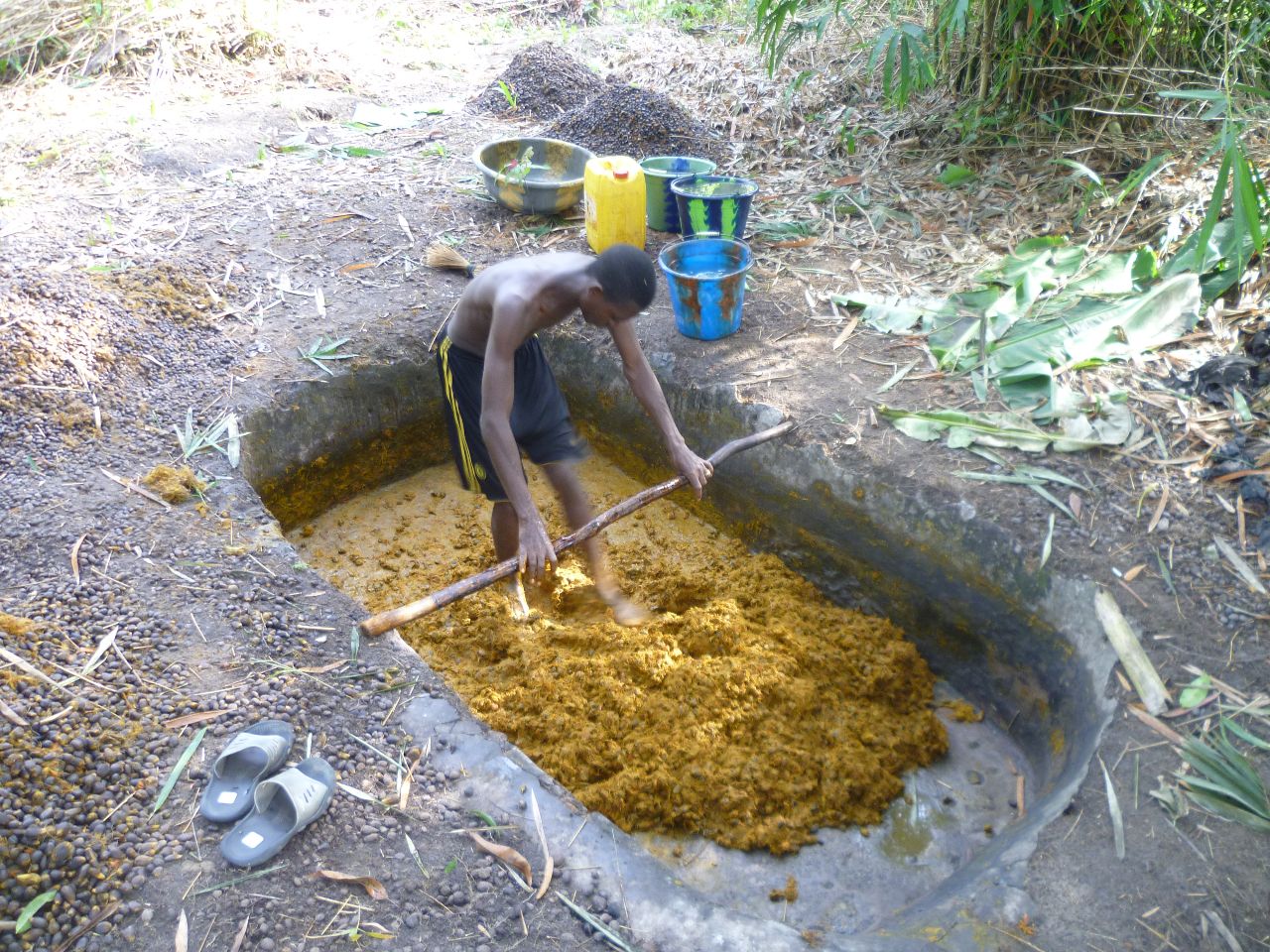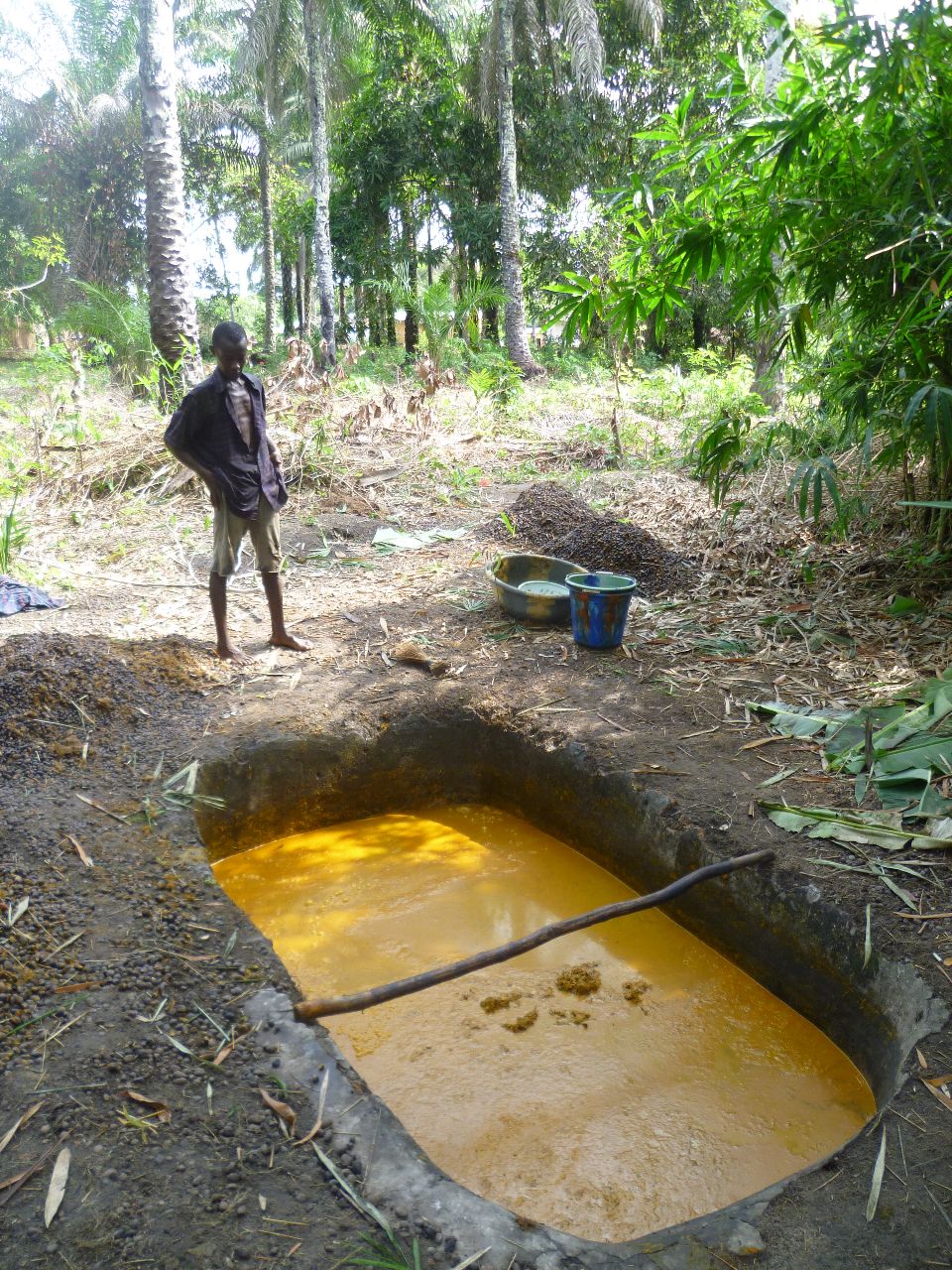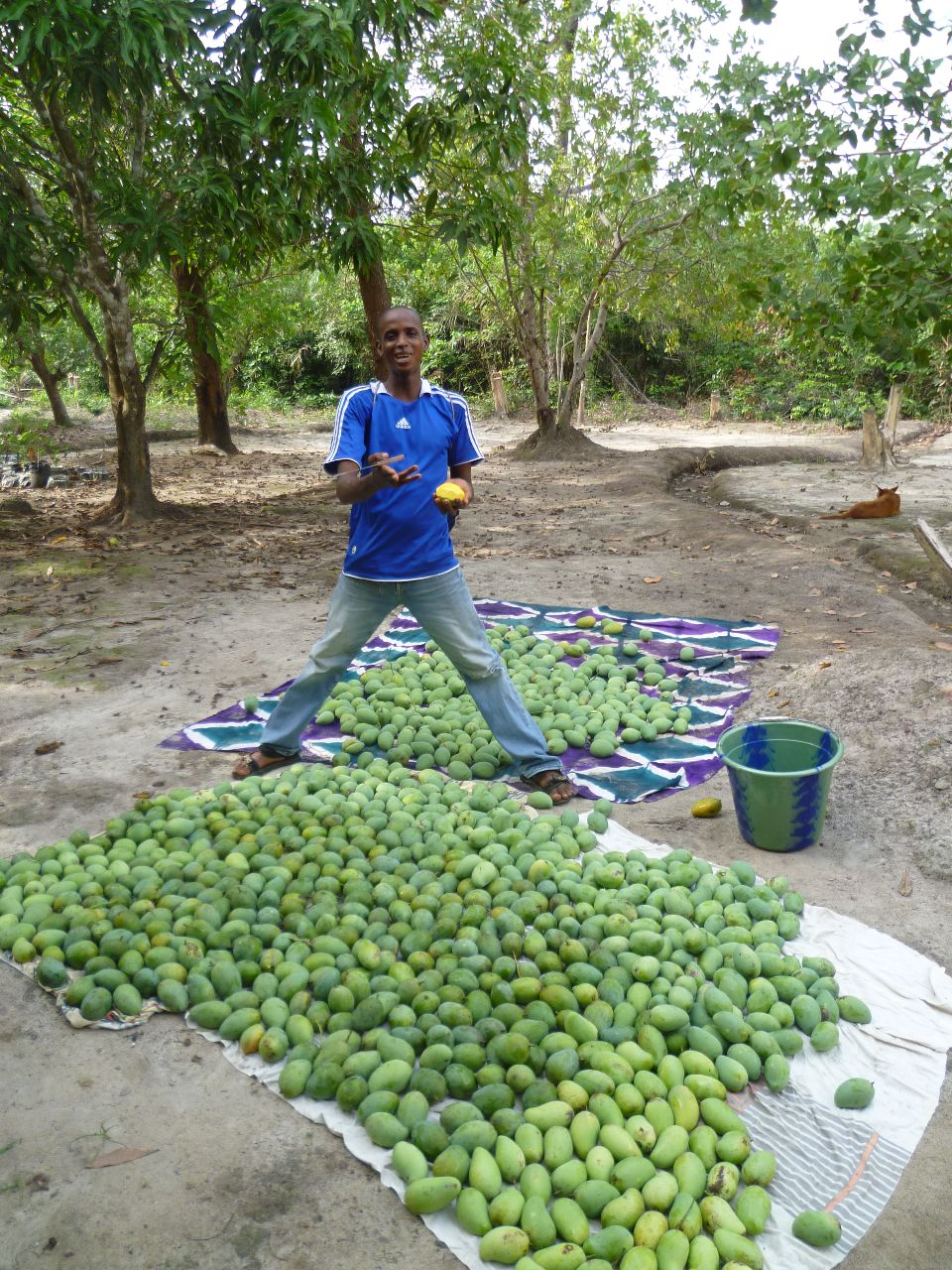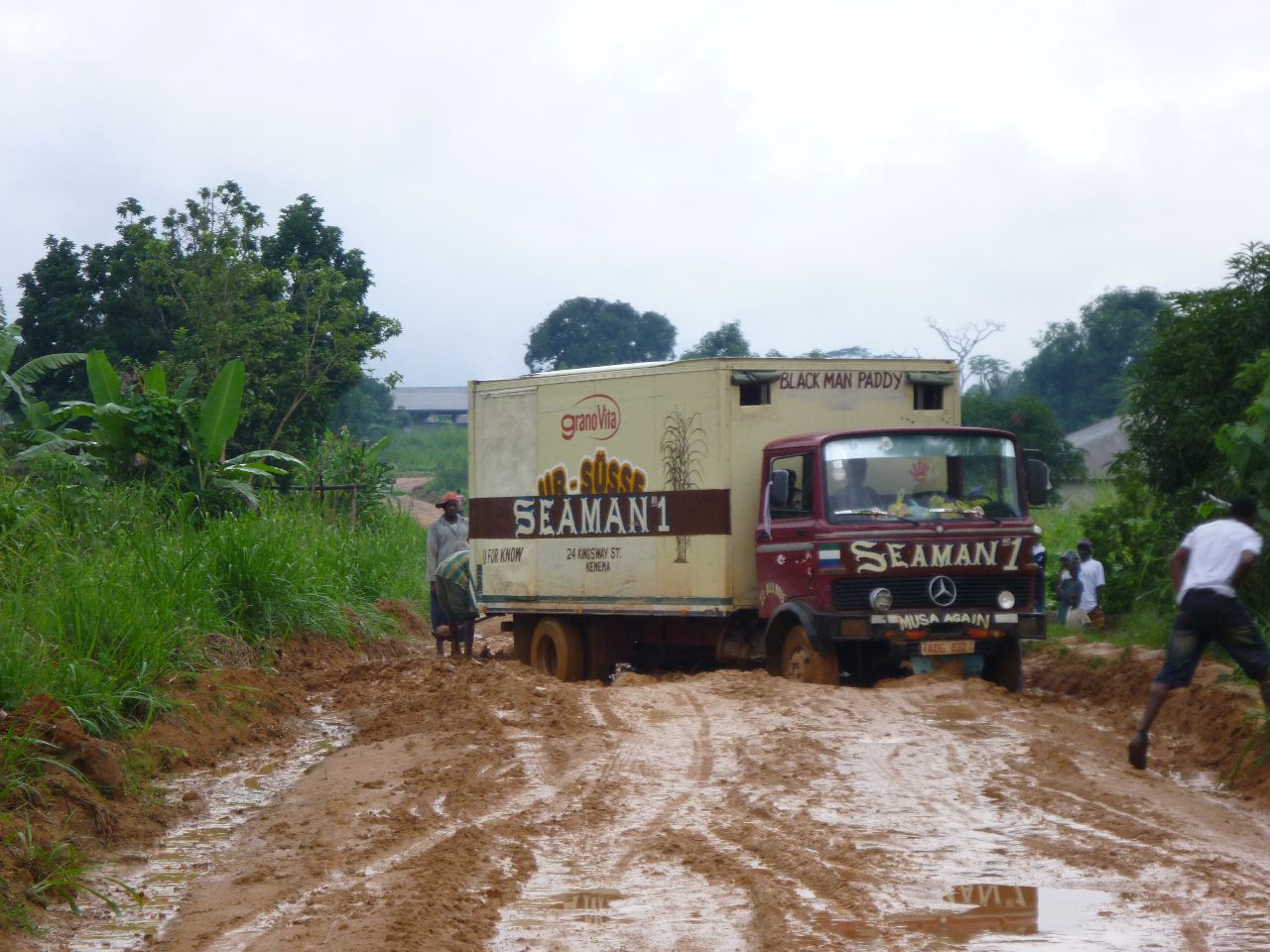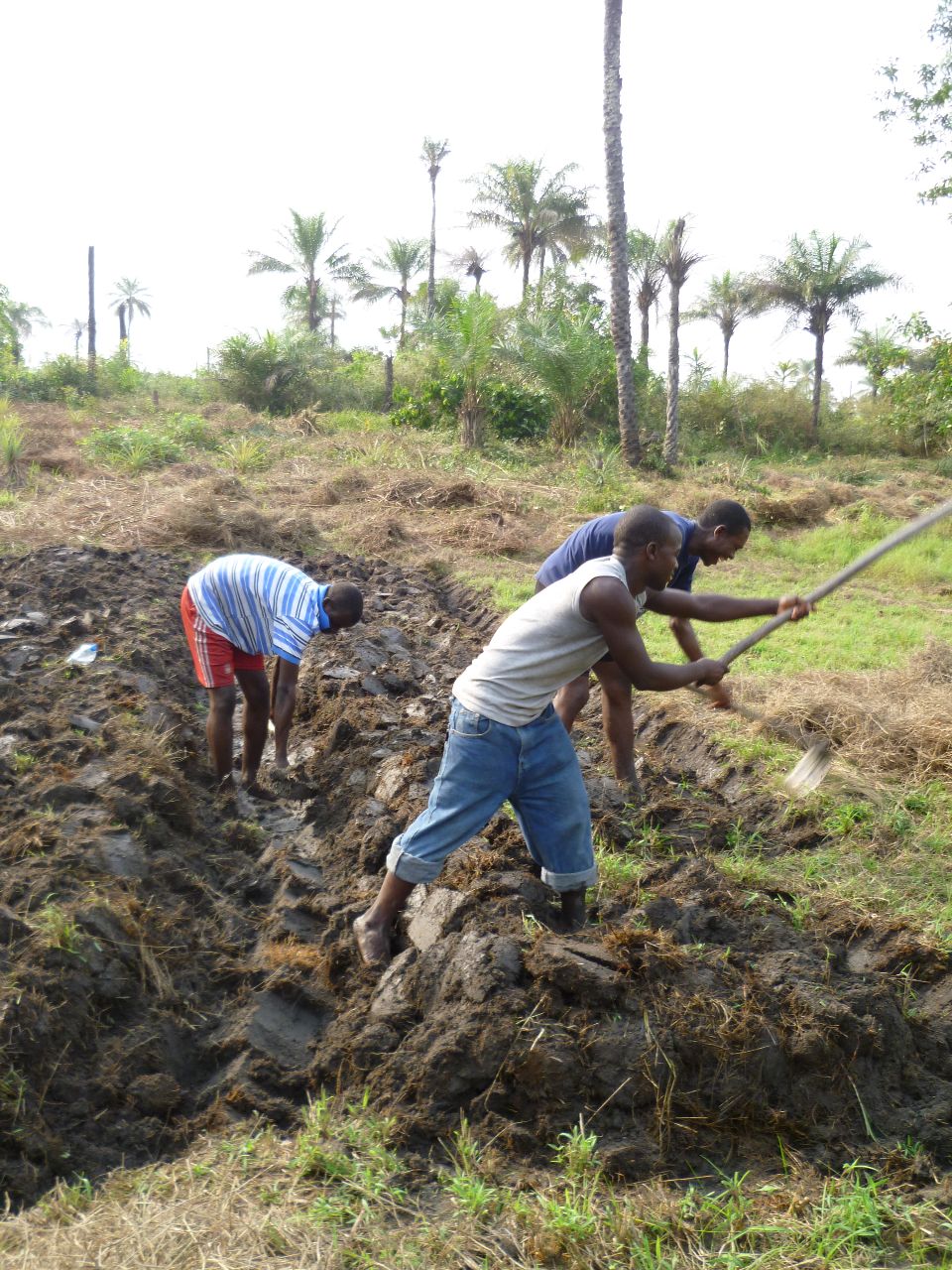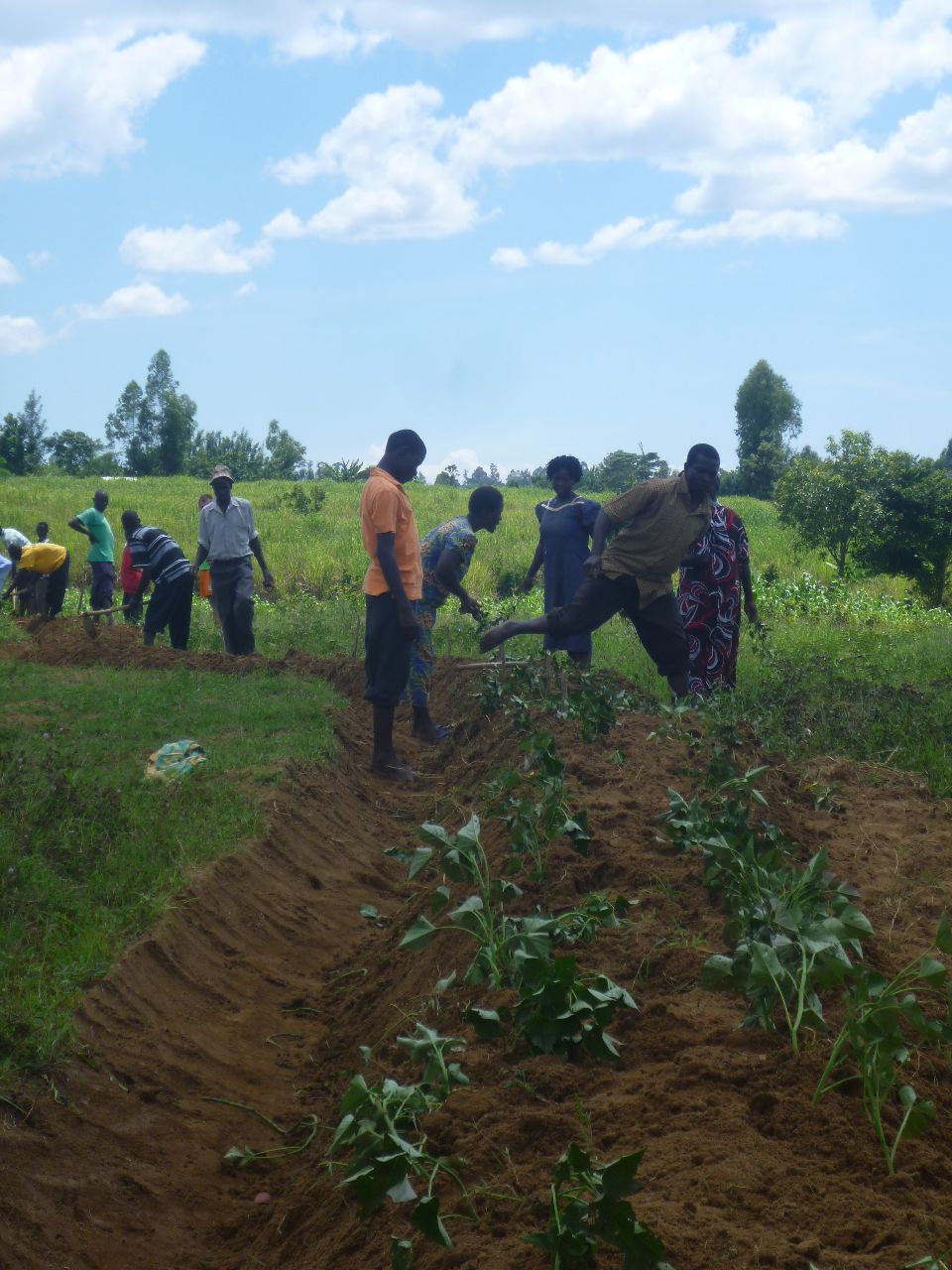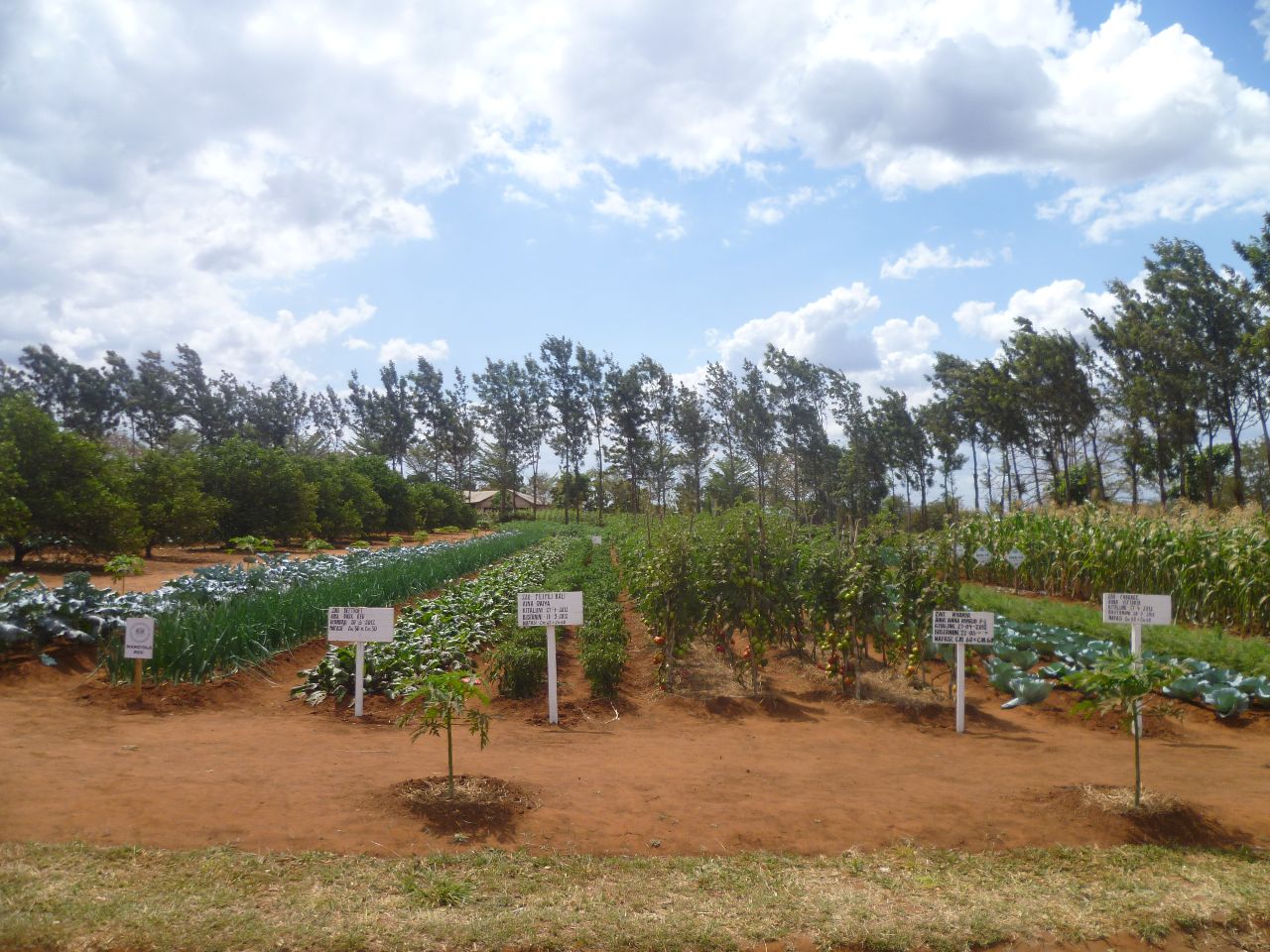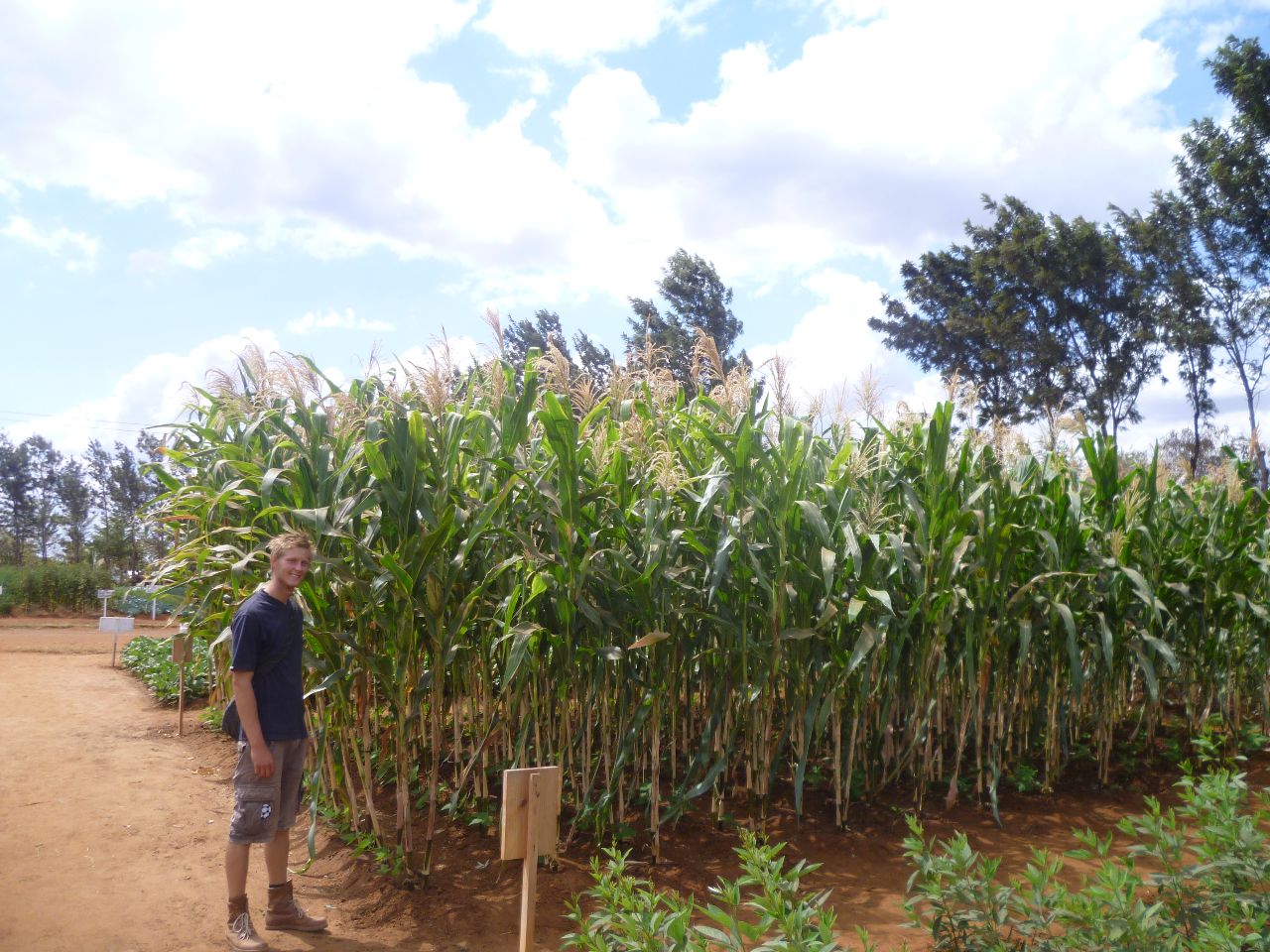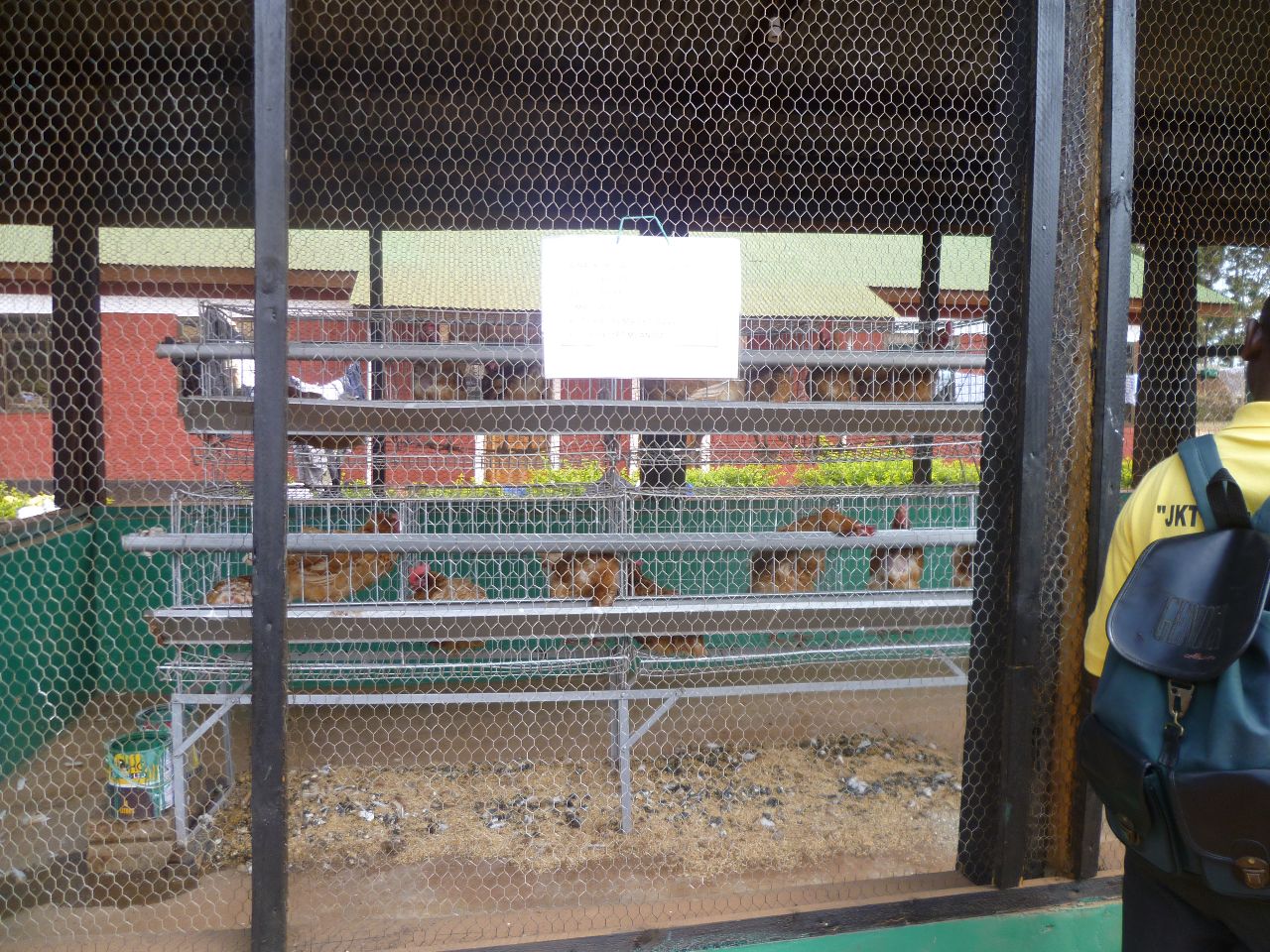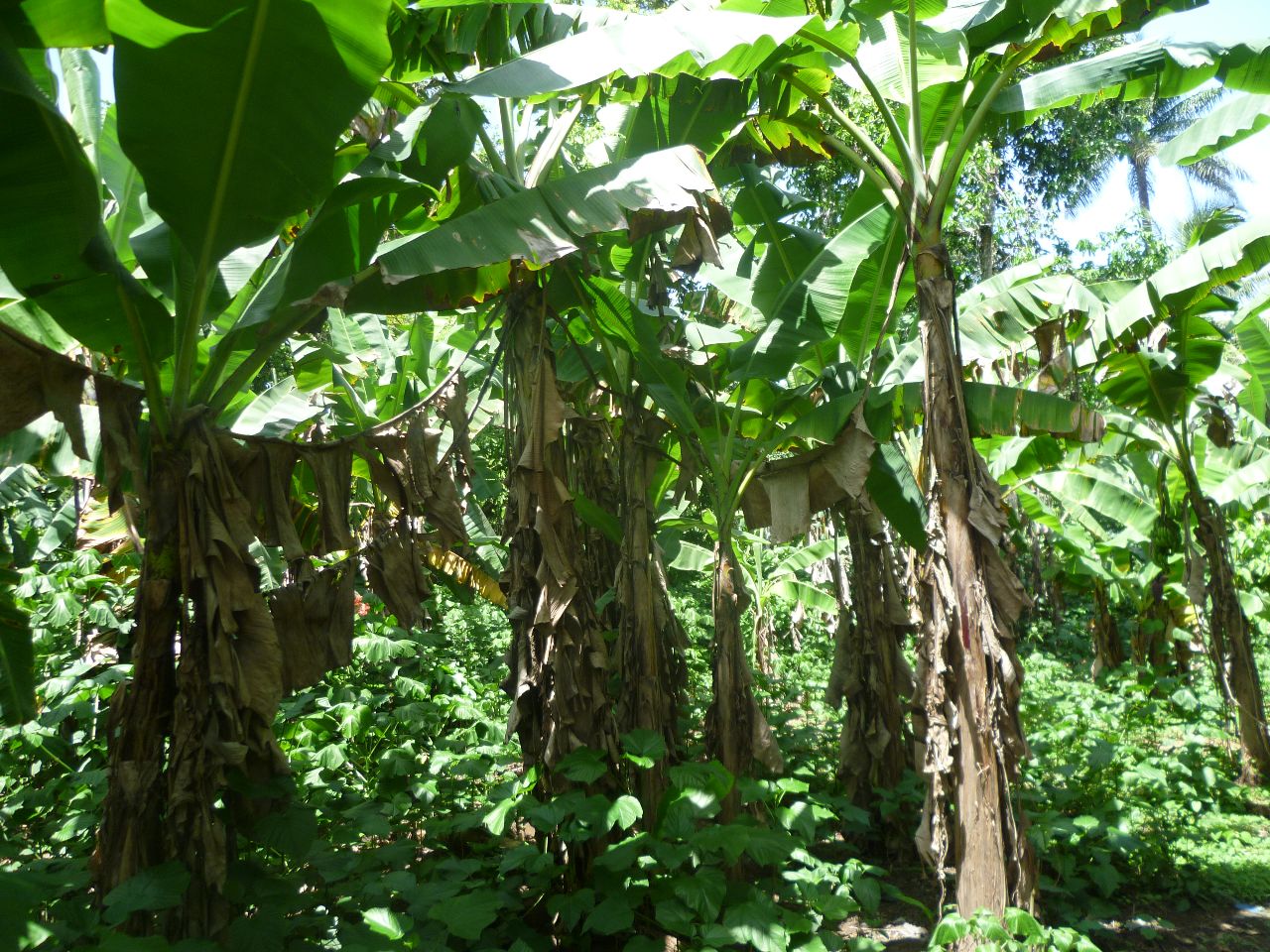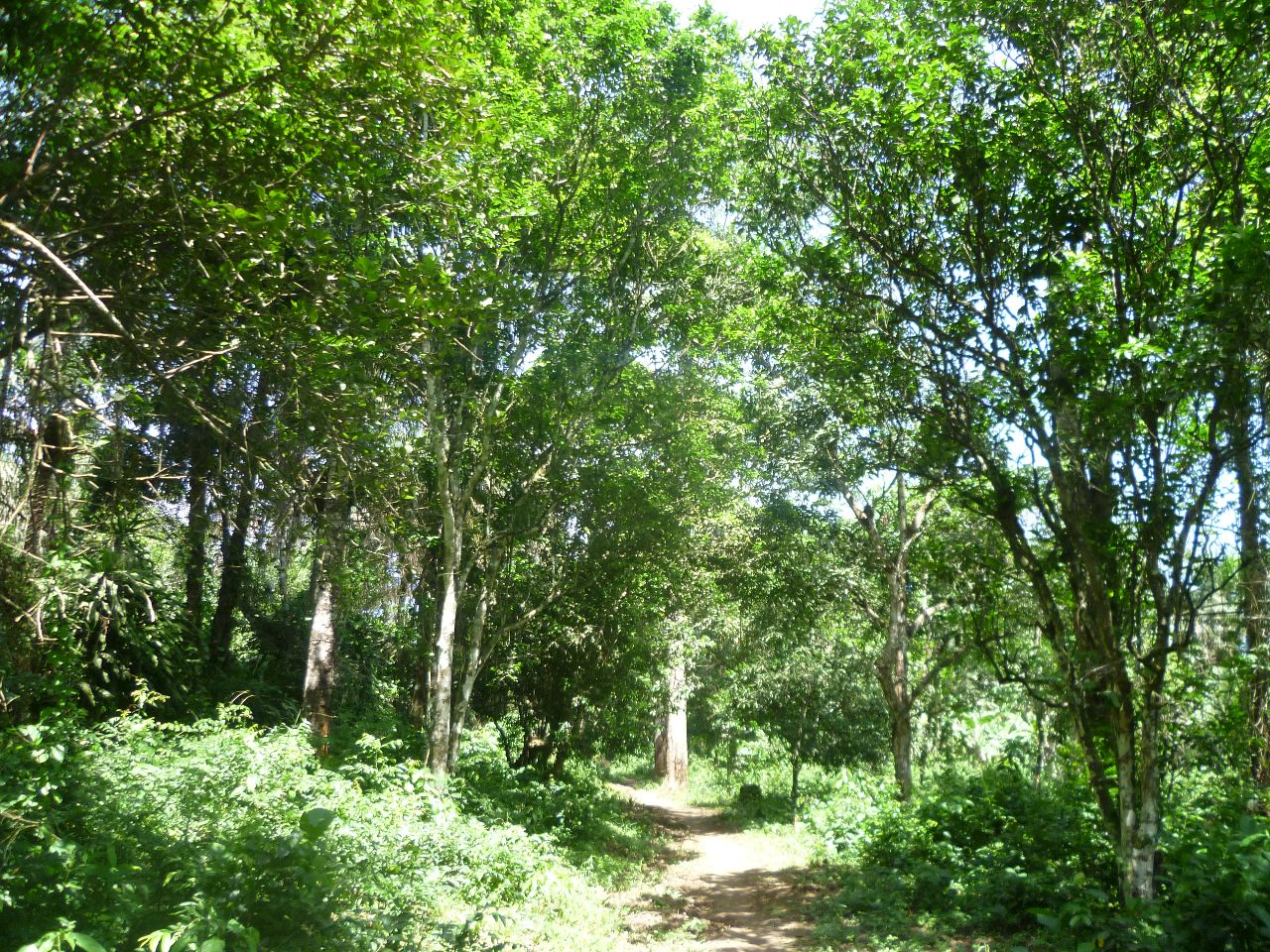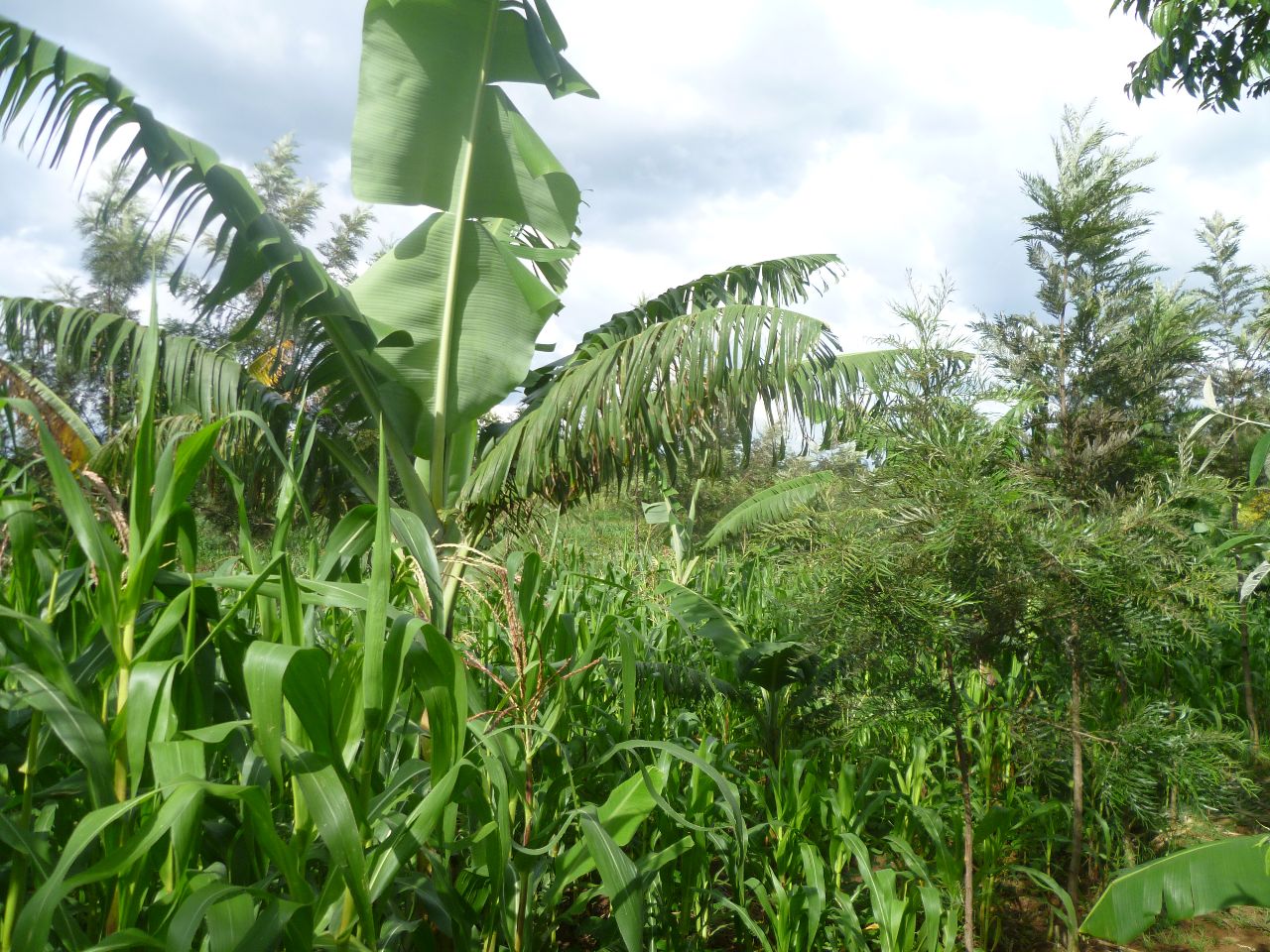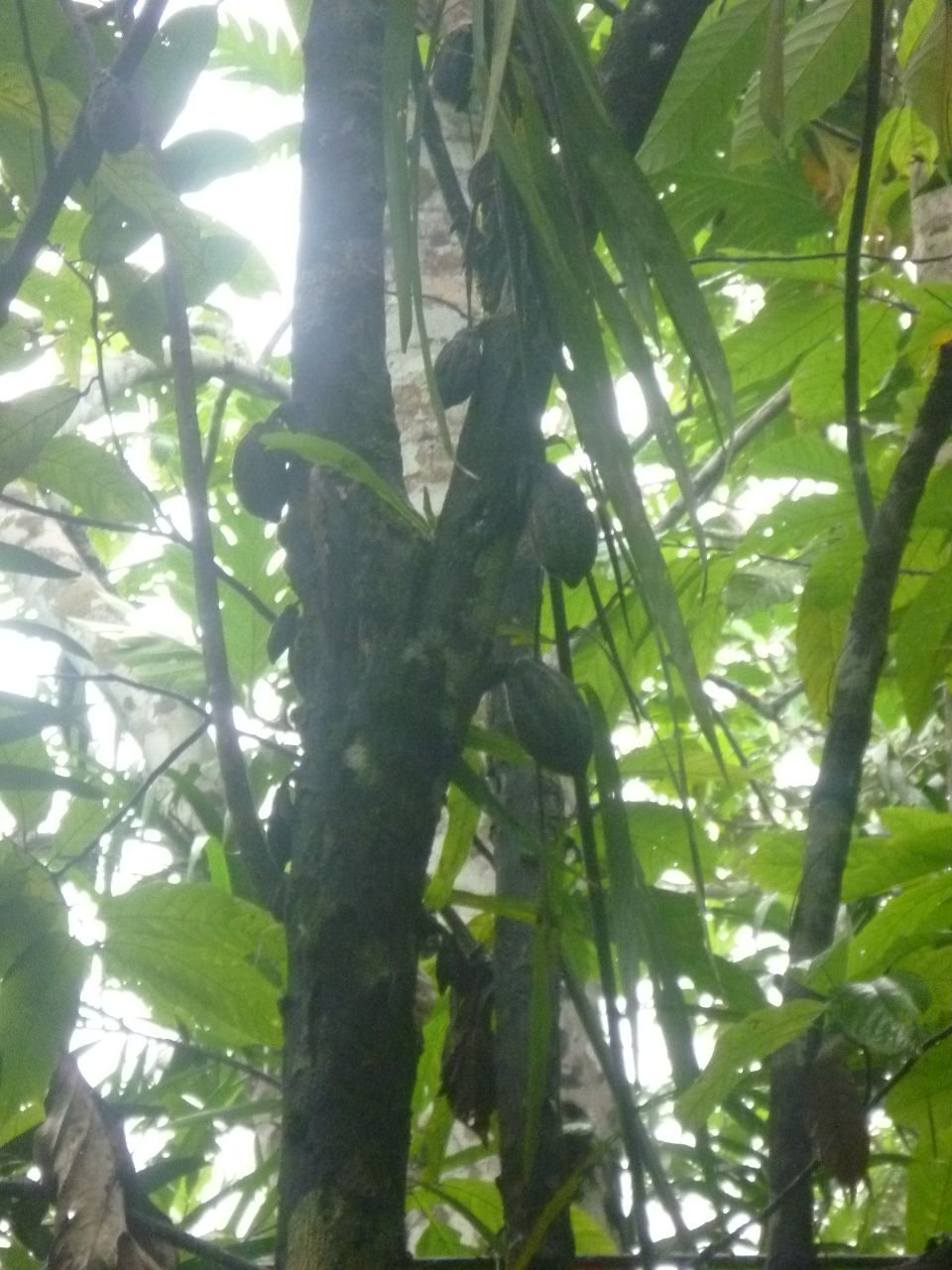If one has never experienced the livelihood systems on the countryside in developing countries, it is hardly conceivable how rough living conditions are and what kind of problems people are facing. The following pictures should give a brief impression, how people are living in tropical and subtropical developing countries and which constraints they are facing. The main focus of this Shabka Fotojournal is on an agricultural perspective with pictures shown from Kenya, Tanzania and Sierra Leone.
The following pictures are licensed under a Creative Commons Attribution-NonCommercial-NoDerivs 3.0 Unported License.
Processing & Marketing
In many Sub-Saharan countries, processing facilities are limited and access to markets is often difficult. Most of the farmers use simple technologies to process their products. Here, palm oil is produced work-intensively in a simple earth pit.
At the beginning of the rainy season in Sierra Leone, markets are bursting with mangoes, with the consequence of a price of around 0.10 € a dozen. As a consequence of this abundance, mangoes are often rotting at this time of the year. However, many farmers often don´t even have the possibility to bring their products to local markets.
Infrastructure
One problem hereby constitutes the poor road infrastructure. Especially in rainy season, many villages are marooned from the outside world.
Working together
Group work is an important social aspect of farming in most developing countries. If heavy and exhaustive work like brushing or preparing the land for cultivation has to be done, farmers are gathering together and help each other.
New technologies
Technical progress, however, is irresistible, and new technologies are entering the African markets. Hybrid seeds, mineral fertilizer and synthetic pesticides are praised to boost agricultural production and are here presented at the agricultural exhibition in Morogoro, Tanzania.
Integrated farming
A radical implementation of unadapted technologies can have fatal consequences for the livelihood systems of smallholder farmers, as hybrid seeds lead to an increased independence on seed companies and synthetic fertilizer and pesticides create a vulnerable (eco-)farming system. A traditional farming system, which has been practiced from generations is therefore threatened to be replaced with a system, which emphases intensification and single crop production and makes farmers more subjected to world market incidents.


